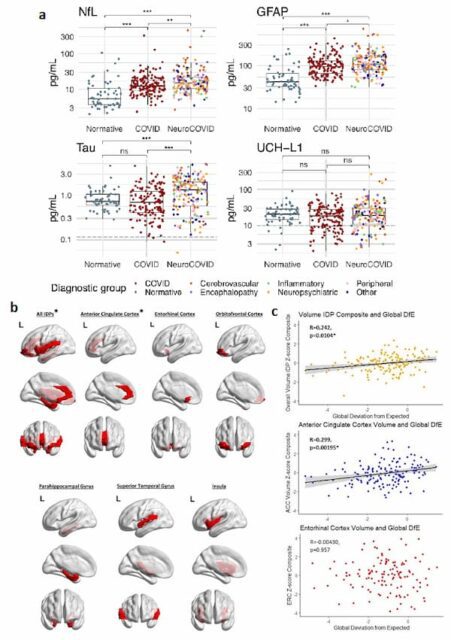- Sie haben noch keine Artikel in Ihrem Warenkorb.
Post-COVID cognitive deficits at one year are global and associated with elevated brain injury markers and grey matter volume reduction: national prospective study (News)

Abstract
The spectrum, pathophysiology, and recovery trajectory of persistent post-COVID-19 cognitive deficits are unknown, limiting our ability to develop prevention and treatment strategies. We report the one-year cognitive, serum biomarker, and neuroimaging findings from a prospective, national longitudinal study of cognition in 351 COVID-19 patients who had required hospitalisation, compared to 2,927 normative matched controls. Cognitive deficits were global and associated with elevated brain injury markers and reduced anterior cingulate cortex volume one year after admission. The severity of the initial infective insult, post-acute psychiatric symptoms, and a history of encephalopathy were associated with greatest deficits. There was strong concordance between subjective and objective cognitive deficits. Treatment with corticosteroids during the acute phase appeared protective against cognitive deficits. Together, these findings support the hypothesis that brain injury in moderate to severe COVID-19 is immune-mediated, and should guide the development of therapeutic strategies.
Health sciences/Medical research/Outcomes research
Health sciences/Neurology/Neurological disorders/Encephalopathy
Health sciences/Medical research/Biomarkers/Predictive markers
Health sciences/Pathogenesis/Inflammation/Chronic inflammation
Health sciences/Diseases/Infectious diseases/Viral infection
Quelle: researchsquare
Den ersten Kommentar schreiben.
Antworten
Sie müssen eingeloggt sein, um einen Kommentar zu schreiben.


